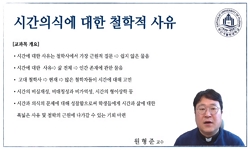The purpose of this paper is to explore the double plot of time and language in Samson Agonistes, and to examine Milton's greatness as a literary artist who has a great talent for making his grand theme "to justify the ways of God to men" ha...
http://chineseinput.net/에서 pinyin(병음)방식으로 중국어를 변환할 수 있습니다.
변환된 중국어를 복사하여 사용하시면 됩니다.
- 中文 을 입력하시려면 zhongwen을 입력하시고 space를누르시면됩니다.
- 北京 을 입력하시려면 beijing을 입력하시고 space를 누르시면 됩니다.
https://www.riss.kr/link?id=A19715323
-
저자
김종두 (연세대학교)
- 발행기관
- 학술지명
- 권호사항
-
발행연도
2000
-
작성언어
Korean
-
주제어
time ; language ; double structure ; salvation ; fall ; regeneration ; vision ; Samson Agonistes ; 시간 ; 언어 ; 이중구조 ; 인간구원 ; 타락 ; 회복 ; 비전 ; 투사삼손 ; time ; language ; double structure ; salvation ; fall ; regeneration ; vision ; Samson Agonistes ; 시간 ; 언어 ; 이중구조 ; 인간구원 ; 타락 ; 회복 ; 비전 ; 투사삼손 ; time ; language ; double structure ; salvation ; fall ; regeneration ; vision ; Samson Agonistes
-
KDC
840.5
-
등재정보
KCI등재
-
자료형태
학술저널
-
수록면
201-226(26쪽)
- 제공처
-
중단사유
※ KISS의 원문 서비스 중단에 따라, 학술지명을 클릭하여 [복사/대출] 서비스를 이용해 주시기 바랍니다.
- 소장기관
-
0
상세조회 -
0
다운로드
부가정보
다국어 초록 (Multilingual Abstract)
Samson Agonistes has a double plot of time and language, each of which has the same process of moving along with the other, The direction of the plot of time is a paradoxical one that moves forward and backward and forward again. Milton rejects the past time as a destructive one that leads men to the spiritual bondage, which is typically connected with men's cyclical repetition of error and sin.
However, men cannot overcome the destructive past without passing through the sufferings and the paradoxes that it brings to them. Milton's soteriology includes the paradoxial process of recovery through sin and error in this way. It is the so-called felix culpa (fortunate fall) of his grand theme. To have a genuine future, it is essential for Milton's characters to experience the inferno of past time and to have real repentance for their past mistakes and sins.
The language plot of Samson Agonistes has a very similar aspect to that of time. In this drama Samson passes through the limits of speech and beyond them into noise and, finally, silence. In the various verbal encounters with the visitors, who are themselves preoccupied with words, he is offered various temptations, and at the same time, the way to his recovery. As a result, at the beginning, the hero is in the bondage of words, at the end, he finally arrives at the calm silence of liberation through the regeneration and inner transformation offered by the valuable experiences of languages.
Milton's greatness lies in his literary artistry to make his theme appear to his readers more effectively and more movingly by using various different plots focusing on his grand theme: man's fall and salvation. He suggests that man's ultimate salvation is the total salvation of man's whole existence. This means not only the salvation of mans soul and morality, but also, more importantly, the redemption of man's fallen time and language.
The purpose of this paper is to explore the double plot of time and language in Samson Agonistes, and to examine Milton's greatness as a literary artist who has a great talent for making his grand theme "to justify the ways of God to men" have a more significant meaning and persuasive appeal to his readers.
Samson Agonistes has a double plot of time and language, each of which has the same process of moving along with the other, The direction of the plot of time is a paradoxical one that moves forward and backward and forward again. Milton rejects the past time as a destructive one that leads men to the spiritual bondage, which is typically connected with men's cyclical repetition of error and sin.
However, men cannot overcome the destructive past without passing through the sufferings and the paradoxes that it brings to them. Milton's soteriology includes the paradoxial process of recovery through sin and error in this way. It is the so-called felix culpa (fortunate fall) of his grand theme. To have a genuine future, it is essential for Milton's characters to experience the inferno of past time and to have real repentance for their past mistakes and sins.
The language plot of Samson Agonistes has a very similar aspect to that of time. In this drama Samson passes through the limits of speech and beyond them into noise and, finally, silence. In the various verbal encounters with the visitors, who are themselves preoccupied with words, he is offered various temptations, and at the same time, the way to his recovery. As a result, at the beginning, the hero is in the bondage of words, at the end, he finally arrives at the calm silence of liberation through the regeneration and inner transformation offered by the valuable experiences of languages.
Milton's greatness lies in his literary artistry to make his theme appear to his readers more effectively and more movingly by using various different plots focusing on his grand theme: man's fall and salvation. He suggests that man's ultimate salvation is the total salvation of man's whole existence. This means not only the salvation of mans soul and morality, but also, more importantly, the redemption of man's fallen time and language.
동일학술지(권/호) 다른 논문
-
From Paradise Lost to Paradise Regained
- 한국밀턴학회
- Hideyuki, Shitaka
- 2000
- KCI등재
-
- 한국밀턴학회
- 김태규
- 2000
- KCI등재
-
『성시 17 번』("Holy Sonnet ⅩⅦ")에 나타난 불안
- 한국밀턴학회
- 김혜련
- 2000
- KCI등재





 KISS
KISS







